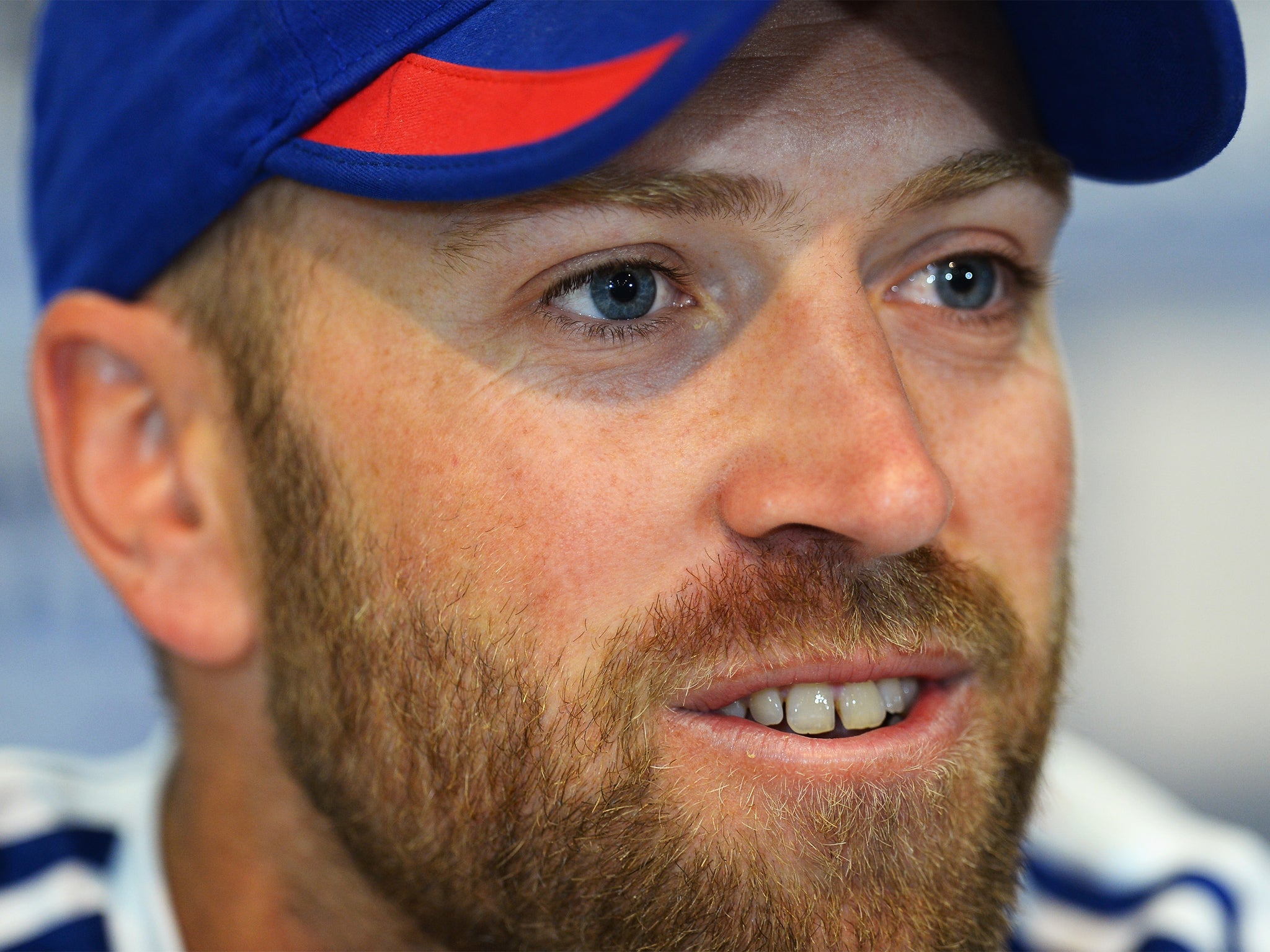The Independent's journalism is supported by our readers. When you purchase through links on our site, we may earn commission.
Ashes 2013: Matt Prior - 'I asked Brad Haddin if he had edged it... he nodded'
Prior tells of the crucial moment when Hot Spot came up trumps for England

Your support helps us to tell the story
From reproductive rights to climate change to Big Tech, The Independent is on the ground when the story is developing. Whether it's investigating the financials of Elon Musk's pro-Trump PAC or producing our latest documentary, 'The A Word', which shines a light on the American women fighting for reproductive rights, we know how important it is to parse out the facts from the messaging.
At such a critical moment in US history, we need reporters on the ground. Your donation allows us to keep sending journalists to speak to both sides of the story.
The Independent is trusted by Americans across the entire political spectrum. And unlike many other quality news outlets, we choose not to lock Americans out of our reporting and analysis with paywalls. We believe quality journalism should be available to everyone, paid for by those who can afford it.
Your support makes all the difference.England’s wicketkeeper Matt Prior yesterday relived the moment when the team called for a review of the decision which eventually won them the first Ashes Test. It is fair to report that his heart was in his mouth.
Prior’s description of events also demonstrates how difficult it is for umpires to declare big, match-altering verdicts. In the second Test, starting at Lord’s tomorrow, the Decision Review System, and the Hot Spot camera in particular, will be the object of constant scrutiny.
With the match at Trent Bridge nearing a pulsating finale, Australia needed 15 runs to win with only one wicket in hand. The last wicket pair had put on 65 when Brad Haddin appeared to get a thin edge to a ball from Jimmy Anderson. Umpire Aleem Dar rejected England’s appeal, which was led by Prior but joined belatedly by Anderson.
“It was a strange one because you’re obviously hoping every ball for that final wicket. And then thankfully – I knew he had hit it, or assumed he had hit it. I heard the noise and for a keeper it can be the faintest nick but it just changes the timing of when the ball hits your gloves. You can almost feel when a batter hits it.So when Jimmy hadn’t appealed I looked at Cooky [captain Alastair Cook] and he said, ‘He’s hit that, hasn’t he?’ and I said, ‘I think so, definitely’ and that’s when we reviewed it. After we had reviewed it I actually turned to Hadds and said, ‘You’ve hit that, haven’t you?’ and he nodded. I was then hoping Hot Spot was going to work and we’d get over the line.”
Hot Spot did its business, albeit faintly, and England won an epic victory. Lest there still be any doubt, Haddin himself banished it forever by saying yesterday: “Yeah, I hit it. I knew I was out; it was obvious.”
Obvious to all but Dar, who turned down the appeal, aware that England still had reviews up their sleeve. It was the last decision in a match that seemed to contain a series of umpiring lapses, although the International Cricket Counci issued a statement yesterday to show that Dar and his colleague Kumar Dharmasena were more often right than wrong.
Between them the pair had to make a total of 72 decisions during the match, well above the average of 49 for a match in which DRS is being used. They were assessed as having made seven errors, three of which went uncorrected. The percentage of correct decisions before reviews was 90.3 per cent, which rose to 95.8 per cent after the use of DRS. This was an increase of 5.5 per cent, which the ICC was clearly delighted to point out was the average increase from DRS Test matches in 2012-13.
The three uncorrected errors included the lbw decision against Jonathan Trott when Dar’s correct decision was overturned and two involving Stuart Broad, who was caught at slip and struck leg before but given not out on both occasions, with Australia having no reviews left.
David Richardson, the chief executive of the ICC, said: “With reverse swing and spin playing an important role, and the added intensity of the first Ashes Test, it was a difficult match to umpire. The umpires did a good job under difficult conditions. This reflects the calibre of umpires Dar, Dharmasena and [Marais] Erasmus, who have consistently performed at a high level. Like the players, umpires can also have good and bad days but we all know that the umpire’s decision, right or wrong, is final and must be accepted.”
As for Prior, he has had a word with Anderson. “I’ve said to him, don’t ever not appeal again.”
Decision Review System: The difference
* A total of 72 decisions were taken by umpires Aleem Dar and Kumar Dharmasena during last week’s first Ashes Test at Trent Bridge. According to the ICC, 65 (90.3 per cent) of those were correct first time, but that number increased to 69 (95.8 per cent) when the DRS was called upon. That still leaves three incorrect decisions for the entire Test, a shortfall of roughly four per cent.
Total umpire decisions 72
Correct before review 90.3%
Correct after review 95.8%
Increase using DRS +5.5%
England reviews 4
Unsuccessful 3
Australia reviews 9
Unsucessful 7*
*Australia had one decision incorrectly reversed by the TV umpire.
Join our commenting forum
Join thought-provoking conversations, follow other Independent readers and see their replies
Comments